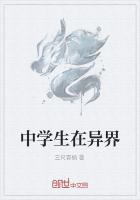In this Dialogue may be noted (1) The Greek ideal of beauty and goodness, the vision of the fair soul in the fair body, realised in the beautiful Charmides; (2) The true conception of medicine as a science of the whole as well as the parts, and of the mind as well as the body, which is playfully intimated in the story of the Thracian; (3) The tendency of the age to verbal distinctions, which here, as in the Protagoras and Cratylus, are ascribed to the ingenuity of Prodicus; and to interpretations or rather parodies of Homer or Hesiod, which are eminently characteristic of Plato and his contemporaries; (4) The germ of an ethical principle contained in the notion that temperance is 'doing one's own business,' which in the Republic (such is the shifting character of the Platonic philosophy) is given as the definition, not of temperance, but of justice; (5) The impatience which is exhibited by Socrates of any definition of temperance in which an element of science or knowledge is not included; (6) The beginning of metaphysics and logic implied in the two questions: whether there can be a science of science, and whether the knowledge of what you know is the same as the knowledge of what you do not know; and also in the distinction between 'what you know' and 'that you know,' (Greek;) here too is the first conception of an absolute self-determined science (the claims of which, however, are disputed by Socrates, who asks cui bono?) as well as the first suggestion of the difficulty of the abstract and concrete, and one of the earliest anticipations of the relation of subject and object, and of the subjective element in knowledge--a 'rich banquet' of metaphysical questions in which we 'taste of many things.' (7) And still the mind of Plato, having snatched for a moment at these shadows of the future, quickly rejects them: thus early has he reached the conclusion that there can be no science which is a 'science of nothing' (Parmen.).
(8) The conception of a science of good and evil also first occurs here, an anticipation of the Philebus and Republic as well as of moral philosophy in later ages.
The dramatic interest of the Dialogue chiefly centres in the youth Charmides, with whom Socrates talks in the kindly spirit of an elder. His childlike simplicity and ingenuousness are contrasted with the dialectical and rhetorical arts of Critias, who is the grown-up man of the world, having a tincture of philosophy. No hint is given, either here or in the Timaeus, of the infamy which attaches to the name of the latter in Athenian history. He is simply a cultivated person who, like his kinsman Plato, is ennobled by the connection of his family with Solon (Tim.), and had been the follower, if not the disciple, both of Socrates and of the Sophists.
In the argument he is not unfair, if allowance is made for a slight rhetorical tendency, and for a natural desire to save his reputation with the company; he is sometimes nearer the truth than Socrates. Nothing in his language or behaviour is unbecoming the guardian of the beautiful Charmides. His love of reputation is characteristically Greek, and contrasts with the humility of Socrates. Nor in Charmides himself do we find any resemblance to the Charmides of history, except, perhaps, the modest and retiring nature which, according to Xenophon, at one time of his life prevented him from speaking in the Assembly (Mem.); and we are surprised to hear that, like Critias, he afterwards became one of the thirty tyrants. In the Dialogue he is a pattern of virtue, and is therefore in no need of the charm which Socrates is unable to apply. With youthful *****te, keeping his secret and entering into the spirit of Socrates, he enjoys the detection of his elder and guardian Critias, who is easily seen to be the author of the definition which he has so great an interest in maintaining. The preceding definition, 'Temperance is doing one's own business,' is assumed to have been borrowed by Charmides from another; and when the enquiry becomes more abstract he is superseded by Critias (Theaet.; Euthyd.). Socrates preserves his accustomed irony to the end; he is in the neighbourhood of several great truths, which he views in various lights, but always either by bringing them to the test of common sense, or by demanding too great exactness in the use of words, turns aside from them and comes at last to no conclusion.















